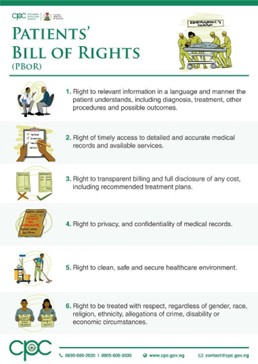An order written by the physician is reviewed by the nursing staff, and no one is familiar with the treatment instructions. A nurse who is recently hired knows that this treatment is covered by the states nurse practice act.
What is the nurses’ best course of action?
Call the physician to ask for clarification.
Check the states nurse practice act.
Refer to the facility’s policy and procedures to determine the course of action.
Contact the nursing supervisor for approval to carry out treatment.
The Correct Answer is C
When faced with an unfamiliar treatment instruction, it is important for the nurse to consult the facility’s policies and procedures to determine the appropriate course of action. These policies and procedures provide guidance on how to carry out treatments safely and effectively and can help ensure that the patient receives the best possible care.
While it may also be appropriate for the nurse to call the physician for clarification (a), check the state’s nurse practice act (b), or contact the nursing supervisor for approval (d), consulting the facility’s policies and procedures should be the first step in determining the appropriate course of action.
Nursing Test Bank
Naxlex Comprehensive Predictor Exams
Related Questions
Correct Answer is C
Explanation
The Patients’ bill of rights is a set of rules that protect patients and ensure that they are treated with dignity, respect, and autonomy. It describes the rights that patients have when they receive medical care and treatment. The Patients’ bill of rights was created to protect patients who are vulnerable and may not have the ability or resources to advocate for themselves.
The Doctrine of privileged information refers to the legal concept that certain information shared between a patient and healthcare provider is confidential and cannot be disclosed without the patient’s consent.
Collaborative practice refers to the coordinated efforts of healthcare professionals from different disciplines working together to provide comprehensive and high-quality patient care.
The Nurse practice act is a set of laws that govern the practice of nursing in a specific state or jurisdiction. It outlines the scope of nursing practice and the responsibilities and obligations of nurses.

Correct Answer is C
Explanation
Involuntary admission to a mental health unit is done when an individual poses a threat to themselves or others due to a mental health condition. The initial hold is usually for 72 hours, during which the client's condition is assessed and an appropriate treatment plan is developed. If the client is still deemed to be a danger to themselves or others after the initial hold, the healthcare provider may request an extension of the hold or seek a court order to continue treatment.
In order to keep the client in the hospital, it must be determined that they continue to pose a threat to themselves or others.
Factors such as the client's ability to make arrangements to stay with someone or financial capability to pay for medications are not relevant to the decision of whether to continue the hold.
Similarly, unwillingness to accept treatment is not the determining factor, as involuntary treatment can be provided to clients who do not recognize their need for treatment if they are deemed to be a danger to themselves or others.
Whether you are a student looking to ace your exams or a practicing nurse seeking to enhance your expertise , our nursing education contents will empower you with the confidence and competence to make a difference in the lives of patients and become a respected leader in the healthcare field.
Visit Naxlex, invest in your future and unlock endless possibilities with our unparalleled nursing education contents today
Report Wrong Answer on the Current Question
Do you disagree with the answer? If yes, what is your expected answer? Explain.
Kindly be descriptive with the issue you are facing.
